




Have you ever wondered how to make peanut butter? It’s fast, easy, and only takes one ingredient. And when you make your own smooth, creamy peanut butter, you’re in complete control of what goes in it — which means that there aren’t any hidden sugars to potentially trigger your alpha-gal allergy.
The information provided on this site is based on my personal experience living with alpha-gal syndrome. I consistently cite and link to expert sources, but nothing published on this site should be perceived as medical advice.
Alpha-gal sensitivities vary by person. You should understand your dietary restrictions, making any adjustments needed, and directing any questions to your physician.
Even as a mid-life mom, a whiff of peanut butter instantly takes me back to my childhood, where my sister and I stand side by side in the kitchen, spreading the creamy nut butter on bread as we pack our school lunches. There’s something so simple yet so satisfying about the smooth spread on delicious bread.
Long before my family had to adopt an alpha-gal diet, I learned how to make peanut butter because I wanted to keep refined sugars and impossible-to-pronounce additives out of my children’s diet. Today, I still use this homemade peanut butter recipe to guarantee there are no hidden alpha-gal triggers lurking in each nutty spoonful.
Making peanut butter at home is fast and easy. And, every spoonful is a testament to the joy of making something from scratch.
This recipe is part of my Effortless Eats series, featuring dishes that are so fast and easy that you barely need a recipe to make them!
To help offset the costs of running SageAlphaGal.com, you’ll find affiliate links lightly sprinkled throughout the site. If you choose to make a purchase via one of these links, there’s no additional cost to you, but I’ll earn a teeny tiny commission. You can read all of the legal blah blah blah (as my little niece says) on the full disclosure page.
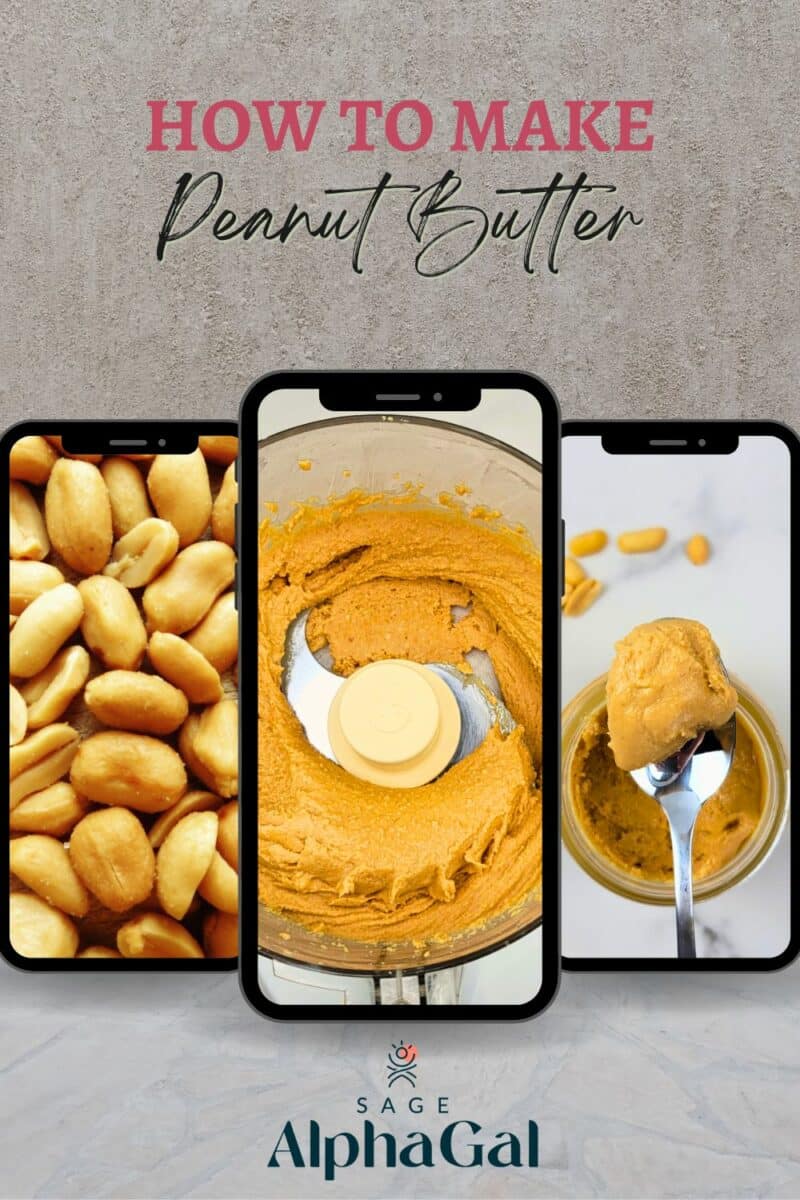
In This Article
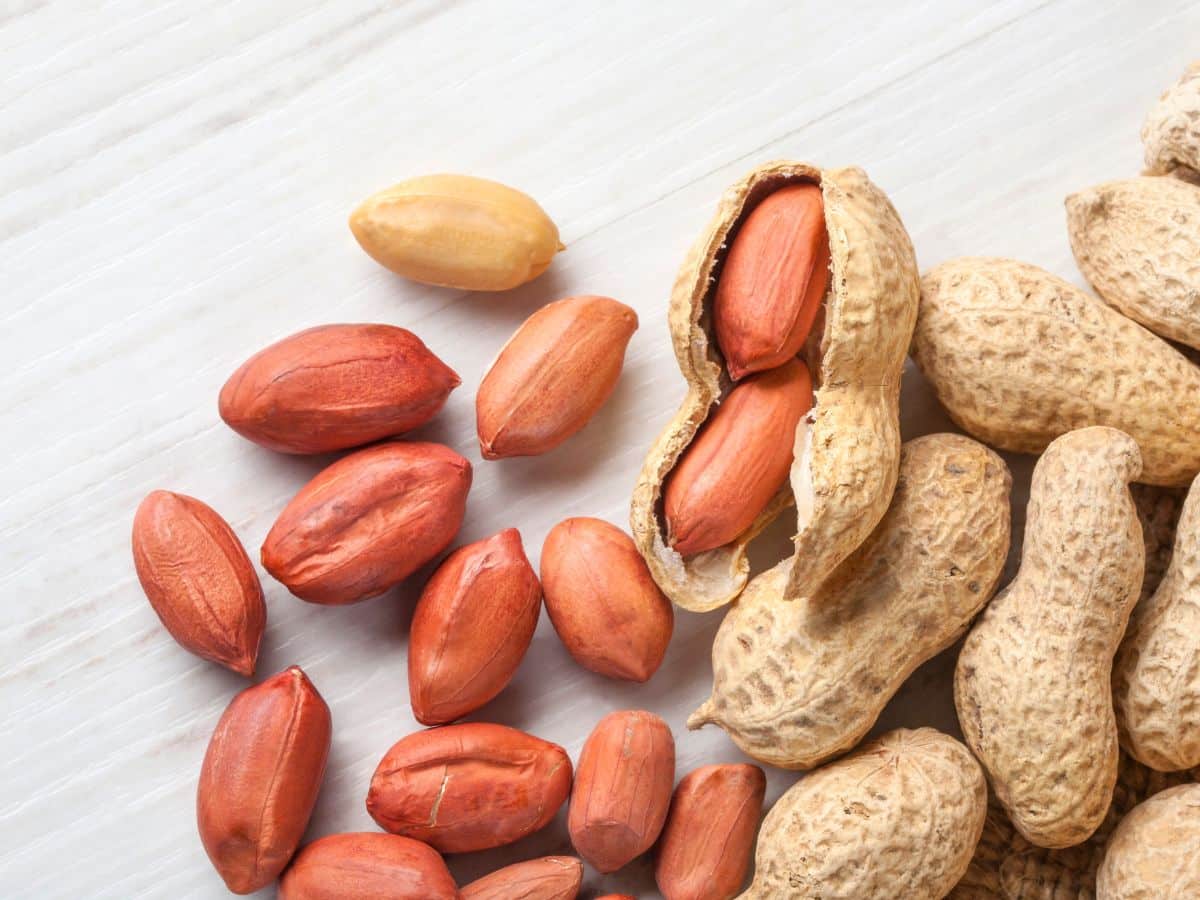
What is Peanut Butter Made of?
The most basic homemade peanut butter is simply raw or roasted peanuts blended into a smooth butter. Depending on the type of peanuts used and your taste preferences, you may want to add a pinch of salt, a drizzle of vegetable oil, or a touch of sweetness – like honey, maple syrup, coconut sugar, or powdered sugar — to the peanut butter.
In comparison, the most widely sold peanut butter brand in the United States lists sugar as a second ingredient, followed by molasses, hydrogenated vegetable oils, and other ingredients. Yikes! When you make peanut butter, you can fully control the ingredients that go into your nutty spread.
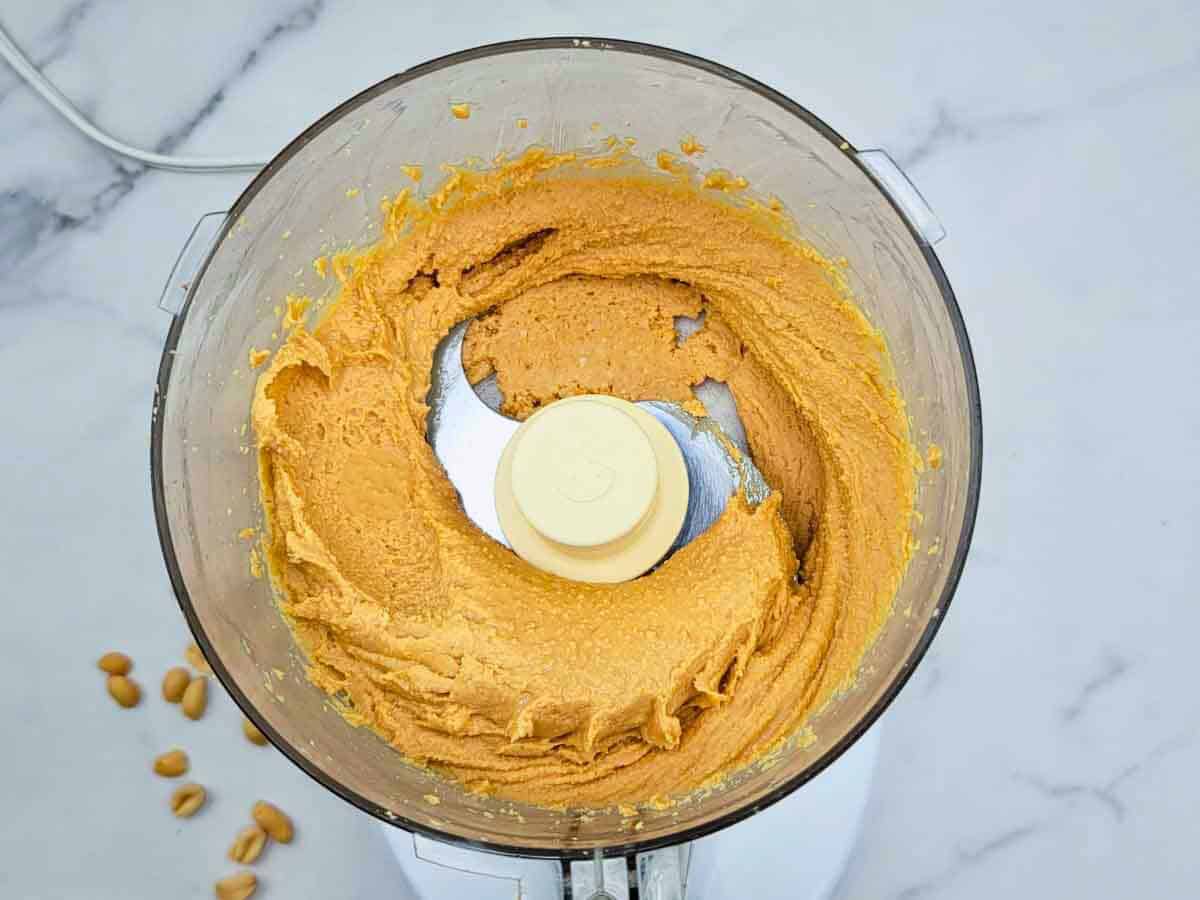
How to Make Peanut Butter Without a Food Processor
Don’t have a food processor? Don’t worry! You can also make peanut butter in a high-speed blender.
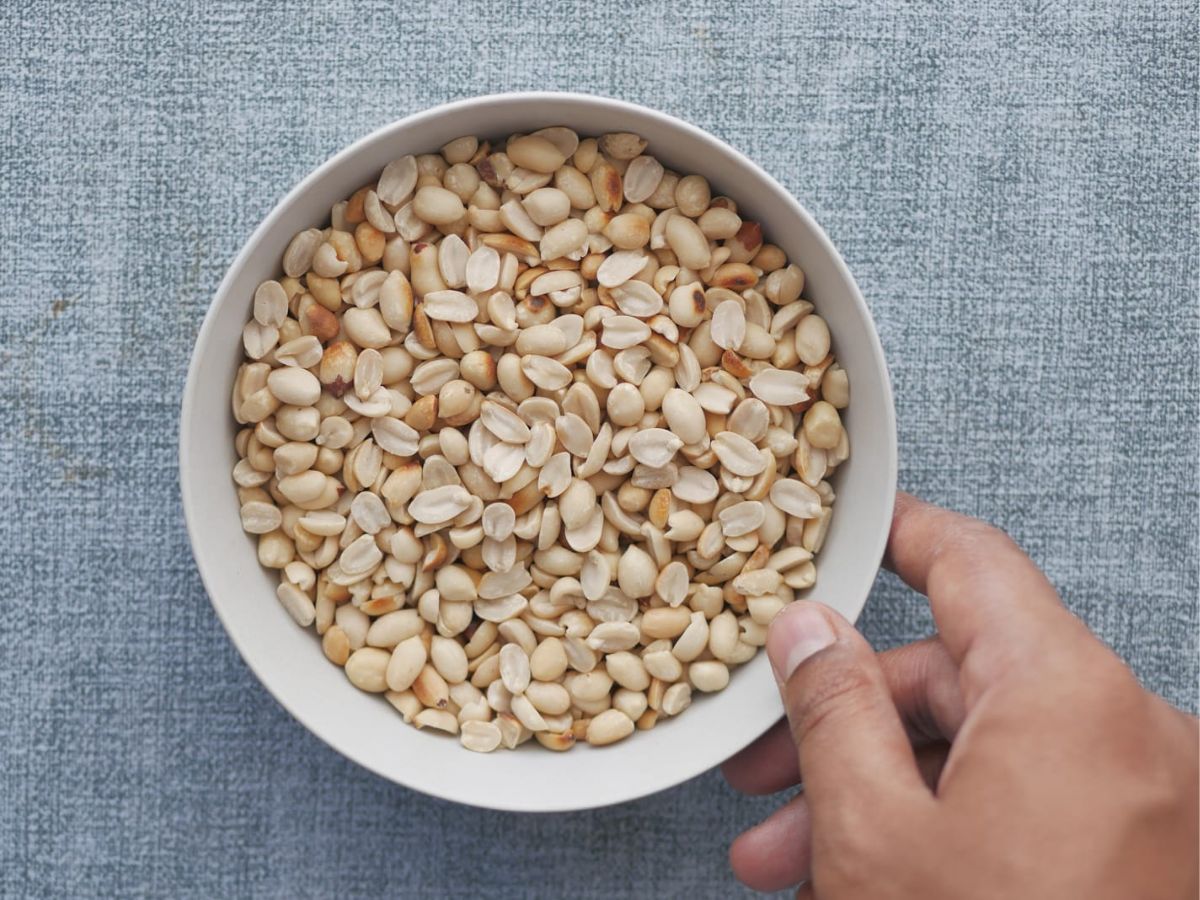
What Kind of Peanuts Should I Use to Make Peanut Butter?
Choosing the right peanuts is essential when making homemade peanut butter. Raw or roasted, the choice is yours, but here’s a tip from my kitchen — roasting raw peanuts can elevate the flavor to new heights. Just spread the unshelled peanuts on a rimmed baking sheet and pop them in a 350F oven for about 10-15 minutes until they are golden brown. If you’re short on time, grabbing a bag of roasted peanuts is your shortcut to yum.
My daughter loves making peanut butter with honey-roasted peanuts. But before you dump a big ole’ bag into your food processor bowl, carefully read the label, especially if you’re an alpha gal sensitive to processed sugar. If you can’t find honey-roasted peanuts that you feel are safe, don’t worry! Grab some plain peanuts, and my recipe will show you how to add a drizzle of honey at the end of the process to add that touch of natural sweetness that you crave.
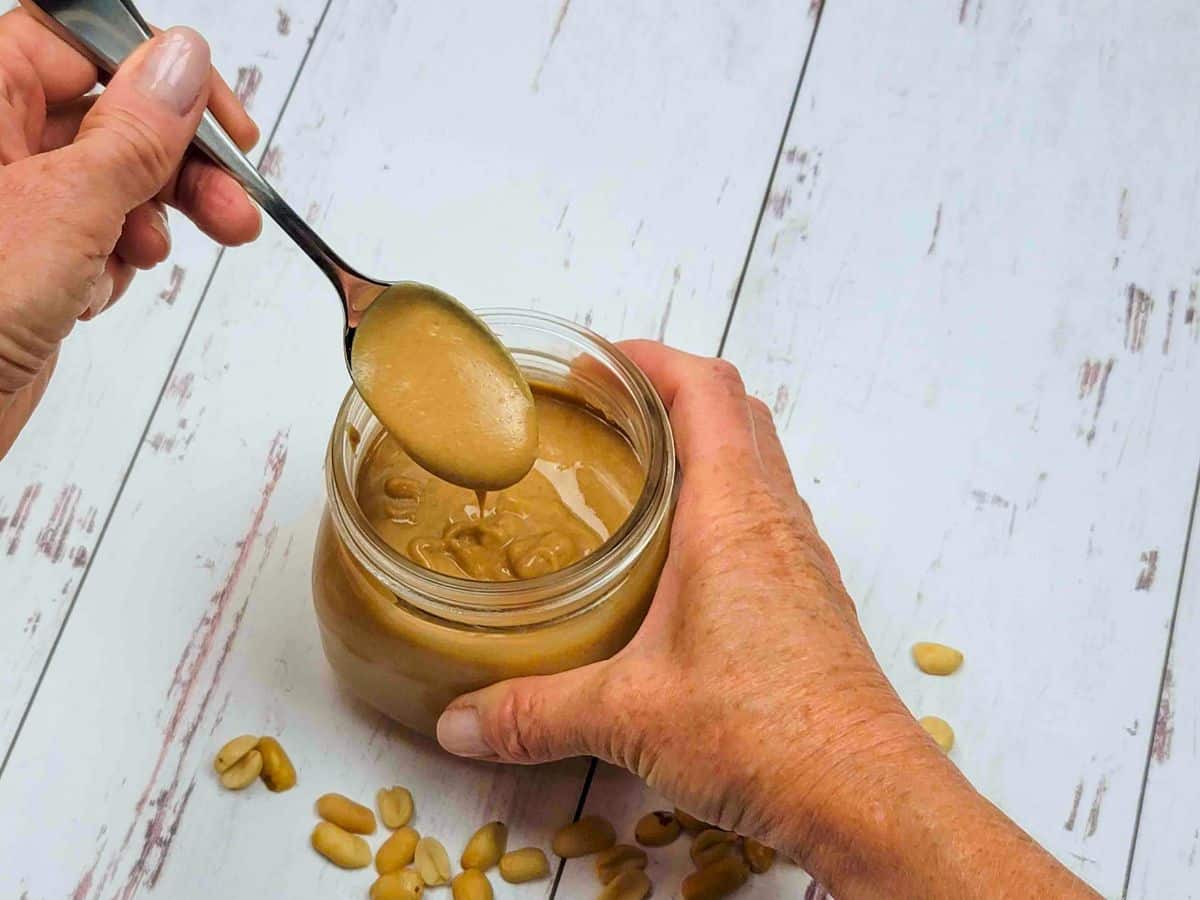
How to Store Homemade Peanut Butter
Properly storing your homemade peanut butter is key to maintaining its freshness and flavor. The best place for it is in the refrigerator, where homemade peanut butter can last up to six months, but it’s always gone before that at our house. If it smells rancid, you’ll know it’s time to bid farewell to your batch. But, if you’ve made it right and stored it properly, you might never encounter that issue.
Before putting your peanut butter in the fridge, be sure it’s in a tightly sealed container. My favorite way to store homemade peanut butter is in a glass mason jar. This keeps unwanted flavors and moisture out and ensures that your peanut butter stays just the right consistency. If you’ve made a smooth, runny peanut butter, expect it to thicken once chilled. But don’t worry, it’ll spread just fine once it’s back to room temperature.
How to Soften Peanut Butter
If you find your homemade peanut butter too firm after refrigeration, don’t fret. Because the homemade variety doesn’t have the stabilizers that the store-bought peanut butter does, it can behave differently with temperature changes. But softening homemade peanut butter is easy — the trick is gentle warmth.
The easiest way to soften peanut butter is to scoop out the amount you need and let it sit at room temperature for a short while. The warmth of your kitchen will coax it back to its gloriously spreadable form.
If you’re in a hurry, you can microwave it in short bursts. Place the peanut butter in a microwave-safe dish and heat it for about 10 seconds at a time, stirring in between. Be careful not to overdo it — you’re looking for soft and spreadable, not scorched.
You can also place your peanut butter container in a bowl of warm water. The heat will soften the peanut butter without affecting its flavor or texture. Just make sure you seal the container tightly so no water sneaks in.
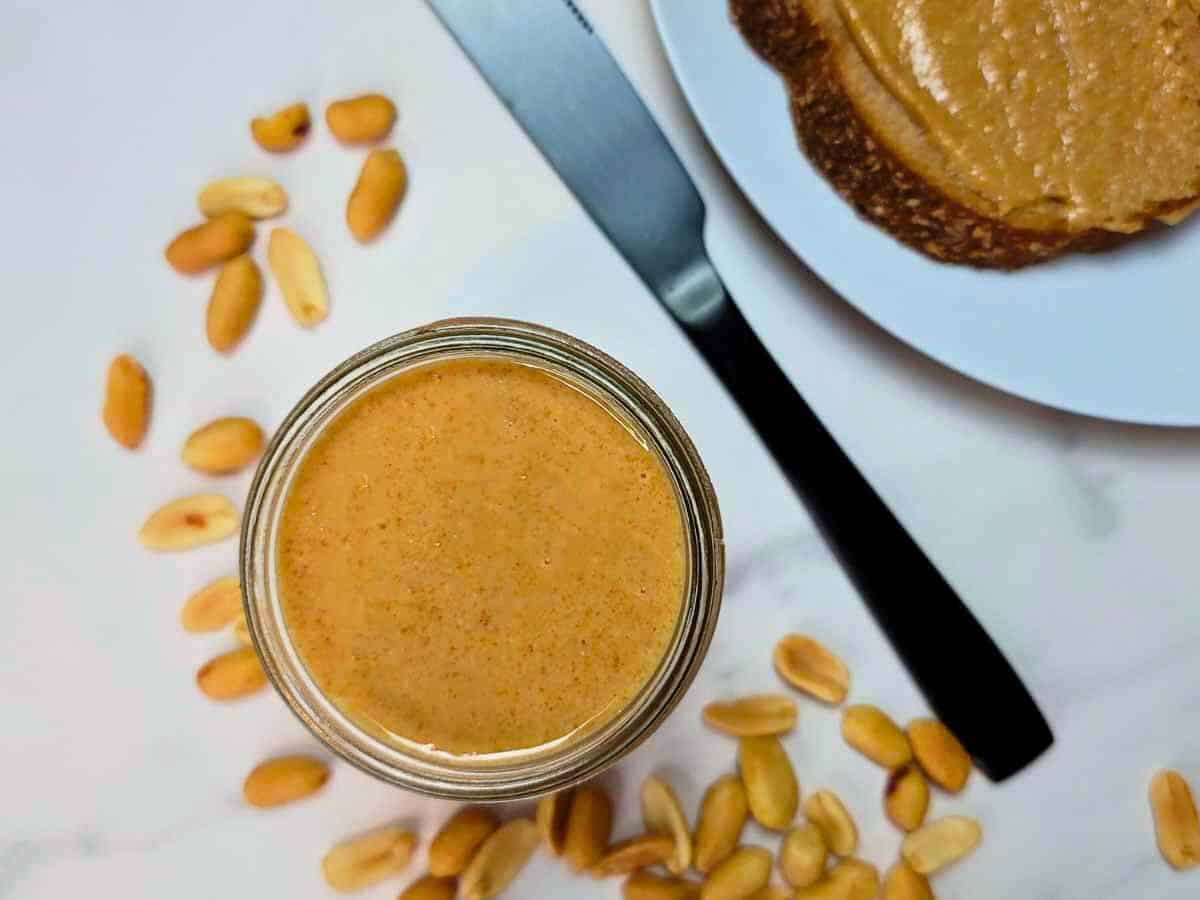
What to Make with Peanut Butter
Peanut butter is a culinary chameleon, adding its creamy goodness to a wide range of foods, from sweet to savory. Venture beyond peanut butter toast or sandwiches and explore the versatility of your creamy spread.
In the morning, swirl a spoon of peanut butter into your oatmeal or add a creamy texture and protein punch to your smoothie. Try a Thai-inspired peanut sauce drizzled over a crunchy salad or a hearty chicken satay at lunchtime. Tasty peanut butter also adds depth to soups and stews and makes a mean marinade or glaze for meats.
Need a quick snack? Drizzle peanut butter over bananas, or spread apple slices with peanut butter and top with a spoonful of granola. Or, whip up a batch of energy balls to keep hunger pangs at bay.
And, if you have a sweet tooth, peanut butter can play a starring role in delicious baked goods. Bake a batch of peanut butter cookies, drizzle it on brownies, or make peanut butter frosting for cupcakes.
So, whether you stick to the basics or love trying new things, there’s a peanut butter creation out there waiting for you to try. What will you create with your homemade batch?
Homemade Peanut Butter
Ingredients
- 2 cups peanuts (see notes above)
Optional Ingredients
- salt
- vegetable oil
- 1 to 2 tablespoons sweetener (honey, maple syrup, coconut sugar, or powdered sugar)
Instructions
- Place peanuts in a food processor.
- Turn the food processor on and let it run for about 5 minutes. As the processor is running, you'll notice the mixture transform from crumbly to a big ball before finally becoming smooth and creamy peanut butter.
- Add any desired salt, oil, or honey and blend just until fully incorporated into the peanut butter.
- Move to an airtight container (my favorite is a mason jar), and store your homemade peanut butter in the refrigerator for up to six months.
Nutrition
Thank you for sharing!

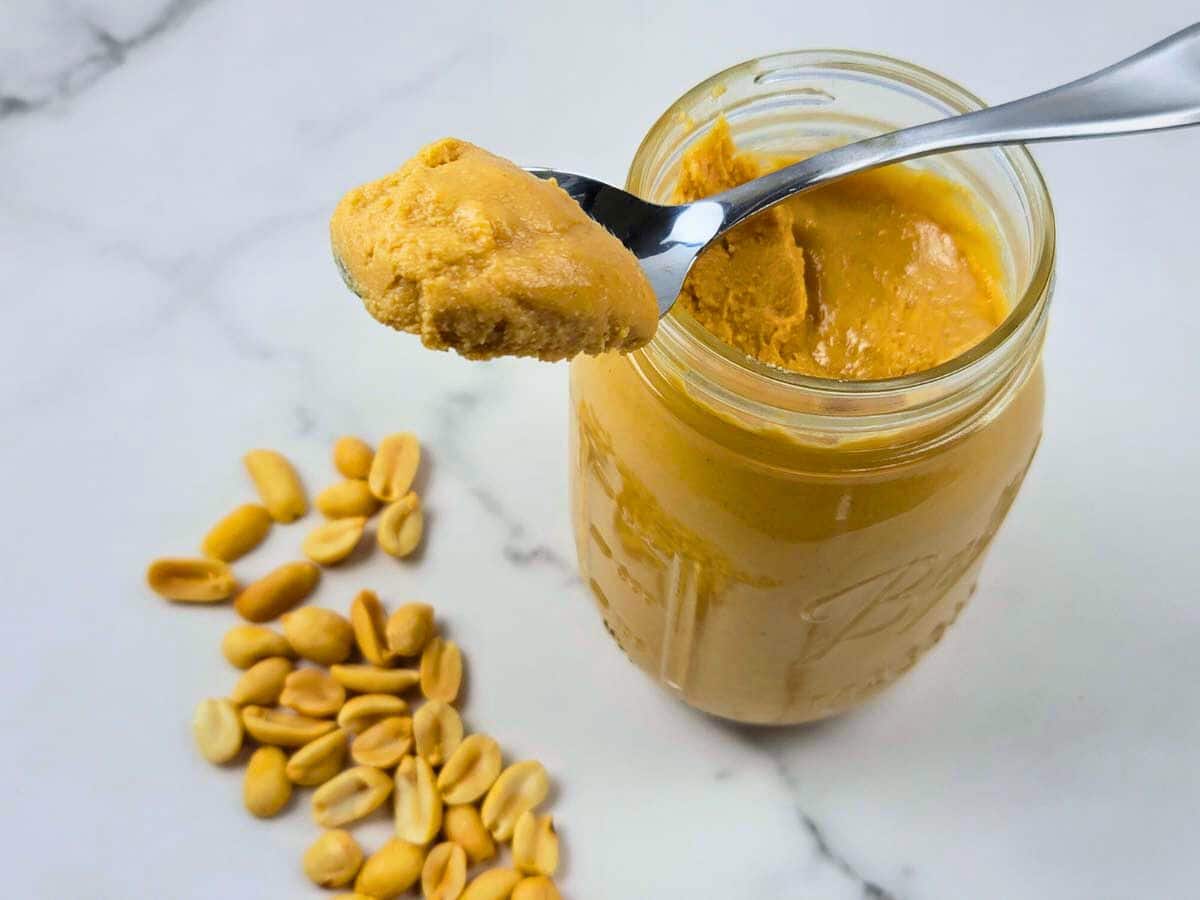
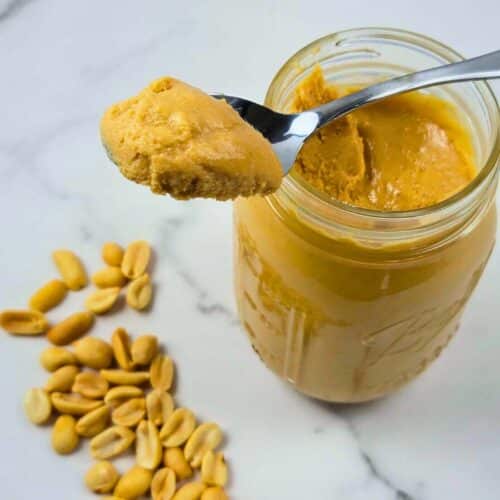
Thank you for this!! I’ve always wanted to make my own peanut butter. I’m excited to make it!
So fast, easy, and delicious! Let me know how it goes!
I love this recipe because of the no added sugar. I can control the ingredients and make it just the way I like it. The texture is smooth and creamy. Plus, it’s so much tastier than anything you can buy at the store.
That’s how we feel!
Can’t believe I used to buy peanut butter when it’s this easy to make at home Just made a big batch of this peanut butter, and now I’m brainstorming all the ways to use it.
So fast, easy, and delicious!
I am never buying peanut butter again! I loved making this peanut butter and having the ability to adjust the seasoning is fantastic.
You’ll have to try my homemade Nutella next!
This homemade peanut butter recipe is simple and versatile. So good! Beats store-bought! Also guaranteed to be healthy and no preservatives. Love it!
I’m glad you like it!
We used honey as the sweetener, and I think my family is ruined for all all other peanut butter now. I can’t believe how easy it is to make. And it’s delicious!
That’s how we are at my house!
Oh peanut butter is such a versatile snack! I love this!!
Sooooo yummy!